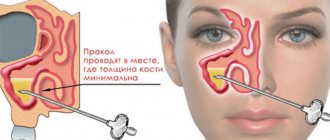Make an appointment by phone: +7 (343) 355-56-57
+7
- About the disease
- Cost of services
- Sign up
- About the disease
- Prices
- Sign up
Dizziness during pregnancy causes unpleasant sensations, manifested by a feeling of rotating objects, unsteadiness of the floor, walls, a feeling of loss of balance, and weakness.
In the first trimester, dizziness may occur due to changes in the body due to pregnancy - hormonal changes. It can manifest itself due to a lack of oxygen in public transport, poorly ventilated stuffy rooms, with changes in blood pressure, changes in body position, and toxicosis. A woman should be observed by a gynecologist during pregnancy and inform the doctor about all symptoms.
In the second trimester, the cause may be physical inactivity. With a sedentary lifestyle, blood circulation worsens. In the absence of physical activity, dizziness and darkening of the eyes can occur with sudden movements, in the morning after waking up, or when bending over. Due to increased blood flow in the uterus, oxygen supply to the brain decreases and this is one of the possible causes of dizziness. Anemia and gestational diabetes are two other reasons that may contribute to poor health.
In the third trimester, dizziness may be due to a lack of oxygen supply to the brain or dizziness that occurs after a long stay in a horizontal or standing position, with a decrease in blood glucose levels. When the hemoglobin level decreases, anemia can develop, while the woman quickly gets tired, dizziness, shortness of breath, weakness, and tinnitus appear.
Treatment should be carried out after determining the cause and always under the supervision of a doctor.
Causes
Main causes of dizziness:
- sudden change in the position of the body or head in space;
- poorly ventilated area;
- high temperature indoors, outdoors;
- decreased blood glucose levels;
- toxicosis;
- staying in one position for a long time;
- anemia;
- diseases of the cardiovascular system;
- osteochondrosis of the cervicothoracic spine;
- diabetes;
- problems with the vestibular apparatus.
Signs of early pregnancy
- Changes in the menstrual cycle
- Weakness and ailments
- The appearance of pain in the chest or abdomen
- Nausea and vomiting
- Changing the emotional background
- Increased discharge
- Increase in basal temperature
Absence or delay of menstruation is the most obvious symptom of pregnancy. However, there are situations when menstruation continues even after pregnancy. If you know exactly about your situation, any discharge should alert you - this is a reason to see a doctor as soon as possible.
The absence of menstruation does not necessarily mean pregnancy. Sometimes disruption of the female cycle can be associated with chronic fatigue, severe stress, and the development of certain diseases. Surgical intervention in the body is also a reason due to which the normal course of the cycle may be disrupted.
Changes in well-being, the appearance of weakness, drowsiness, and a constant desire to sleep can also be a sign of pregnancy at an early stage. During this period, all the body’s protective functions sharply decrease, so there is a risk of catching a cold simply by ventilating the room. Hence the frequent nasal congestion and sore throat in expectant mothers.
Signs of pregnancy may also include factors such as chest discomfort or abdominal cramps. A woman’s body begins to actively restructure itself from the second week - intensive work is underway to form the fetus and placenta, the muscles of the uterus begin to actively contract, and the breasts begin to accumulate milk for future breastfeeding. In this regard, it is possible that the halo of the breast (circles around the nipples) and the discharge of clear liquid from it may change.
Nausea and vomiting are fairly common factors that accompany pregnancy. They are especially acute in the morning, after waking up, and can also be a reaction to a wide variety of odors - food, perfume, household chemicals. In a normal case, such symptoms should disappear by the end of the third month, but there are cases when they persist until the third trimester of pregnancy. For late toxicosis - “histosis” - doctors recommend that pregnant women undergo treatment in a hospital.
Most women experience a change in their emotional state as they become pregnant. Sudden mood swings are associated, first of all, with changes in hormonal levels, as well as with increased anxiety about your unborn baby.
Discharge from the genitourinary system is a natural process for the female body, but with the onset of pregnancy they change their structure and color - they become transparent and more mucous. Such secretions are a normal process of protecting the body from the penetration of all kinds of viruses and bacteria.
First trimester of pregnancy. Part 2
Zlatina Elena Aleksandrovna, doctor obstetrician-gynecologist, candidate of medical sciences, talks about the main signs of pregnancy, stages of fetal formation, proper nutrition and physical activity during the first trimester.
During the first trimester of pregnancy, the formation of the main organs and systems of the fetus occurs. The cardiovascular system and the central nervous system begin to function first. It should be said that the central nervous system continues its development until the very end of pregnancy and at the same time develops faster than other other systems and organs in the fetus. That is why the first trimester of pregnancy is very important and the most vulnerable in terms of the impact of some unfavorable environmental factors on the fetus. Therefore, up to 8 weeks, it is advisable to limit, or better yet completely eliminate, the intake of any medications. The exceptions are folic acid and iodine. It is advisable to start taking these drugs several months before conception, or at least from the moment the fact of pregnancy is established. Pregnancy affects the entire woman’s body, the severity of these manifestations is related to the duration of pregnancy, the number of fetuses and the individual characteristics of the woman.
The first, and sometimes the only signs of pregnancy are weakness, drowsiness, dizziness, and fatigue. Nausea and vomiting may occur. If vomiting continues several times a day, sometimes several dozen times a day, this may require hospital treatment. Therefore, in any case, a woman needs to contact an obstetrician-gynecologist.
Installment plan for all clinic services
For those who are more comfortable paying in installments
Of course, you should quit smoking. As for physical activity during pregnancy, in particular in the first trimester of pregnancy, physical activity is extremely beneficial for a pregnant woman. The exception is when there is a threat of miscarriage. In this case, physical activity should be avoided. If there are no signs of a threat of miscarriage, then the most favorable activities for a pregnant woman are considered to be walking, swimming, and walks in the fresh air. It is advisable that these be daily walks in the fresh air for about one to one and a half hours; walks before bed are preferable. You should avoid cycling and any other physical activity that involves vibration and shaking of the body, as this can cause pregnancy complications.
As for the nutrition of a pregnant woman in the first trimester of pregnancy, there are no strict dietary restrictions at this stage. It should be said that in the first trimester of pregnancy, the taste preferences of pregnant women may change. There is no need to be shy about satisfying them, and you need to eat often. This should be approximately 5-6 meals a day. However, portions should not be large. That is, frequent split meals should be in the first trimester of pregnancy.
In the modern world, women lead a very active lifestyle. Therefore, I would like to dwell separately on the fact that it is advisable to exclude air travel during pregnancy. It is better to carry out all travel and business trips by land transport. Naturally, if possible.
Pregnancy is not a disease, but it is a load on the body of the expectant mother, which makes certain adjustments to her lifestyle. A woman should get enough sleep. If you have a job that is associated with occupational hazards, you should refuse them from the very beginning of pregnancy.
Attending courses for pregnant women is very useful, since they usually include not only physical therapy classes, but also lectures that involve informing women about what happens to her during each period of pregnancy.
The Scandinavia clinic has created an online school for pregnant women and young parents, thanks to which you will receive maximum theoretical and practical knowledge.
There are never too many promotions
Travel, training, food delivery and other partner offers Read more >>>
After a woman has visited an obstetrician-gynecologist for the first time, and the fact of pregnancy has been confirmed, the woman is informed that she needs to register for pregnancy. You can register for pregnancy either at the antenatal clinic at your place of residence or at medical centers that are licensed to manage pregnancy.
Pregnancy management at the Scandinavia clinic includes regular consultations with qualified obstetricians and gynecologists, conducting the necessary studies and tests. Our programs for expectant mothers are designed in accordance with the latest recommendations of the World Health Organization.
It is advisable to register for pregnancy before 12 weeks. This is due to the fact that when registering for pregnancy, a woman undergoes a fairly wide range of tests, undergoes a number of examinations, which makes it possible to identify any deviations early enough and correct them. In particular, examination of the level of thyroid hormones is very important, since correction of hypothyroidism during pregnancy is necessary and prevents the development of complications of both pregnancy itself and the formation of the fetus.
Next, the woman registers for pregnancy and a plan is determined for her with the frequency with which she should visit the obstetrician-gynecologist. If this is a normal pregnancy, then up to 20 weeks of pregnancy it can be 1 dose every 4 weeks.
Thus, if a woman suspects she is pregnant, she should contact an obstetrician-gynecologist to receive all the necessary advice and recommendations that will allow her to endure the pregnancy and give birth to a healthy baby.
Date of publication: 01/17/17
Weight gain
Weight gain becomes more common towards the end of the first trimester. You can gain from 500 grams to 2 kilograms in the first few months. Calorie needs in early pregnancy are not much different from a normal diet, but they will increase as pregnancy progresses.
In later stages, pregnancy weight is distributed between:
- chest (from 500 grams to 1.5 kilograms);
- uterus (about 1 kilogram);
- placenta (about 500 grams);
- amniotic fluid (about 1 kilogram);
- increased volume of blood and fluid (about 2-3 kilograms);
- fat (from 2.5 to 4 kilograms).
External changes and subjective sensations by week
Gynecologists warn that all representatives of the fair sex experience this special period differently. When asking more experienced friends how to understand that she is already pregnant, a woman is often faced with conflicting descriptions. It is not worth determining the very fact of pregnancy and its duration “by feeling”. However, some patterns can be observed:
- 1 week of pregnancy: possible mood swings, “premonition that everything has worked out”;
- 2-3 weeks: pain in the lower abdomen, breasts become more sensitive, mood changes quickly;
- Week 4: delayed menstruation, feeling tired, drowsiness, nagging pain in the lower abdomen, the nipple circles darken;
- 5-6 weeks: symptoms of toxicosis appear - nausea, sensitivity to odors increases, urination becomes more frequent, episodes of dizziness are possible, body temperature rises, and sensations reminiscent of ARVI are possible.
Speaking about any unusual or unpleasant manifestations, it is worth paying attention to the following:
- Severe weakness, dizziness, sticky sweat;
- Bloody discharge from the genital tract may be accompanied by cramping, aching pain;
- Repeated nausea, vomiting, inability to replenish fluid loss by drinking, increasing dehydration.
If one or more signs are detected, you should immediately consult a doctor: there is a danger to the woman’s health, termination of pregnancy is possible.
Other early pregnancy symptoms
Hormonal changes during pregnancy may cause other signs and symptoms:
- Bloating and constipation. Increased progesterone levels cause the bolus to pass through the intestines more slowly, which can contribute to constipation. Drink more water, exercise, and eat plenty of high-fiber foods.
- Mood swings. Estrogen and progesterone levels increase during pregnancy. This can affect your mood and make you more emotional than usual. Mood swings are common during pregnancy and can lead to depression, irritability and anxiety.
- Headaches and back pain. During pregnancy, some women report mild headaches and back pain.
- Dizziness and fainting.
Symptoms subside in the second trimester
During pregnancy, you may experience all of these signs and symptoms, and some women may only experience one or two. Many of these symptoms you experience in the first trimester will begin to disappear in the second trimester. Be sure to tell your doctor about any symptoms that interfere with your daily life.
Womenfirst
- Khachkuruzov, S. G. Ultrasound examination during early pregnancy / S. G. Khachkuruzov. — 7th ed. — Moscow: MEDpress-inform, 2021.
- Obstetrics and gynecology 4th edition revised 2019.
- Ministry of Health of the Russian Federation Clinical guidelines “Obstetric hemorrhage” 2016
- FSBI "Scientific Center for Obstetrics, Gynecology and Perinatology named after Academician V.I. Kulakov" DIAGNOSTIC ALGORITHM FOR BLEEDING / PAIN IN EARLY PREGNANCY Vikhareva O.N., Tetruashvili N.K., Voevodin S.M., Demidov V.N., Shmakov R.G., Yusupov K.F. 2015
RUS2124800-2 from 03/20/2020
Cramps and discharge
The body of a pregnant woman at 1-4 weeks begins to change at the cellular level. A blastocyst (a group of cells on days 5-6 of embryo development), created from a fertilized egg, will subsequently form into the body parts and organs of the child.
After about 10 to 14 days (week 4), the blastocyst will implant in the endometrium, the lining of the uterus, which can cause implantation bleeding, which some women mistake for a light menstrual cycle, which usually lasts 3 to 12 days after the egg is fertilized.
4 common signs of implantation bleeding:
Pain. The pain may be mild, moderate, or severe. According to a study of 4,539 women, 28% of women attribute their discharge and light bleeding to pain1.
The color of the discharge can vary from pink or red to brown, which is normal.
Bleeding. Bleeding is usually compared to a normal menstrual cycle.
Episodes. Implantation bleeding may last less than 3 days and does not require treatment.
Implantation bleeding cramps resemble menstrual cramps, so some women mistake them and the presence of bleeding for the start of their menstrual cycle.
Also, a pregnant woman may notice white or milky vaginal discharge, which appears due to thickening of the vaginal walls, which begins almost immediately after conception. The growth of cells lining the vagina causes a discharge. These discharges are not dangerous, do not require treatment and can accompany a woman throughout her pregnancy.
Advice. If you experience a foul odor associated with your discharge, or a burning or itching sensation, be sure to tell your doctor so he can check for a bacterial or yeast infection.
Breast changes: tingling, pain, growth
Breast changes may appear between the 4th and 6th weeks. Due to changes in the level of female hormones, the breasts may become swollen or tingling. Women may feel that their breasts are heavier or fuller, and may also experience increased sensitivity. This usually goes away after a few weeks as the body gets used to the hormones.
Nipple and breast changes may also occur at 11 weeks. Hormones promote breast growth. The areola, the area around the nipple, may change to a darker color and become larger.
Keep in mind that it will take a few weeks for your body to get used to the hormonal changes.
Clue
- You can reduce sensitivity in your breasts by purchasing a comfortable maternity bra. A cotton bralette is often the most comfortable
- It is better to choose one bra with different levels of clasps, with which you can adjust the size in the coming months
- Invest in breast pads, such as bamboo pads, that are inserted into your bra to reduce friction and nipple pain.
Nausea and vomiting
Morning sickness usually occurs between 4 and 6 weeks and, despite its name, can occur not only in the morning, but at any time of the day or night. There is no scientific basis for what exactly causes nausea, but hormones are definitely involved.
During the first trimester of pregnancy, many women experience morning sickness, which can range from mild to moderate to severe. May become more intense towards the end of the first trimester and often subsides by the beginning of the second trimester.
Morning sickness is probably the most well-known early sign of pregnancy, but not every pregnant woman experiences it!
Also, some pregnant women change their taste preferences: they either crave or have an aversion to certain foods so much that even the thought of what was once a favorite dish can cause a gag reflex.
Some women experience vomiting, nausea, cravings and food aversions throughout their pregnancy. But in most cases, these symptoms decrease around 13-14 weeks of pregnancy.
Clue
- Keep a bag of saltine crackers by your bed and eat a few before you get up in the morning.
- Drink plenty of water and stay hydrated
- Call your doctor if you cannot keep liquid or food down in your stomach.
Be sure to eat a healthy diet to ensure you and your developing baby get the nutrients they need. You can seek advice on this from your doctor.
Heartburn
Hormones can cause the valve between the stomach and esophagus to relax. This allows stomach acid to leak out, causing heartburn.
Before using medications for heartburn - so-called antacids that reduce the acidity of gastric juice by neutralizing hydrochloric acid - be sure to consult your doctor, as some of the antacids can negatively affect the health of the unborn baby.
Clue
- Prevent pregnancy-related heartburn by eating in several small meals instead of large ones
- After eating, try to sit upright for at least an hour to give the food more time to digest
- If you need antacids, talk to your doctor about your safety and the safety of your child.






